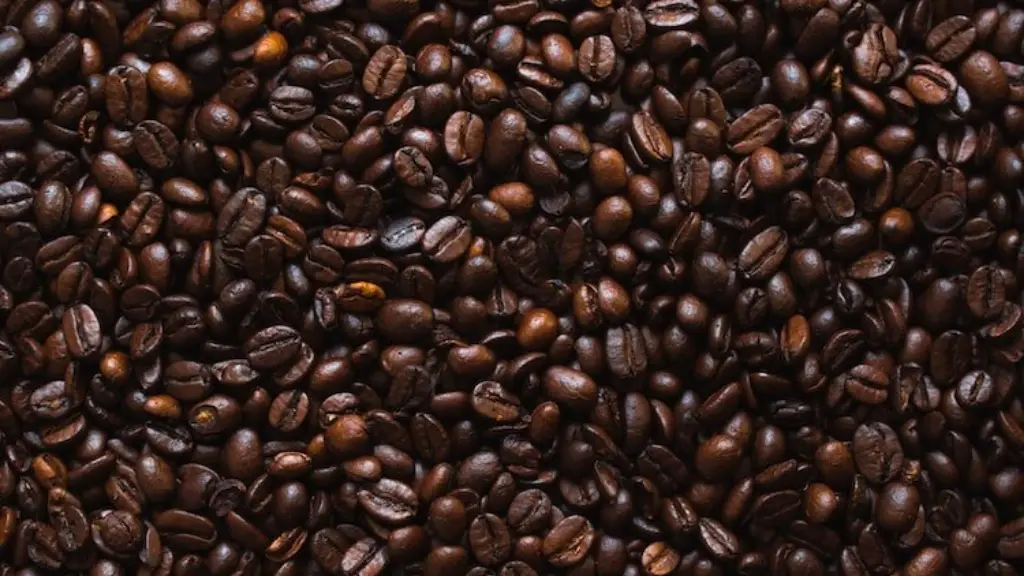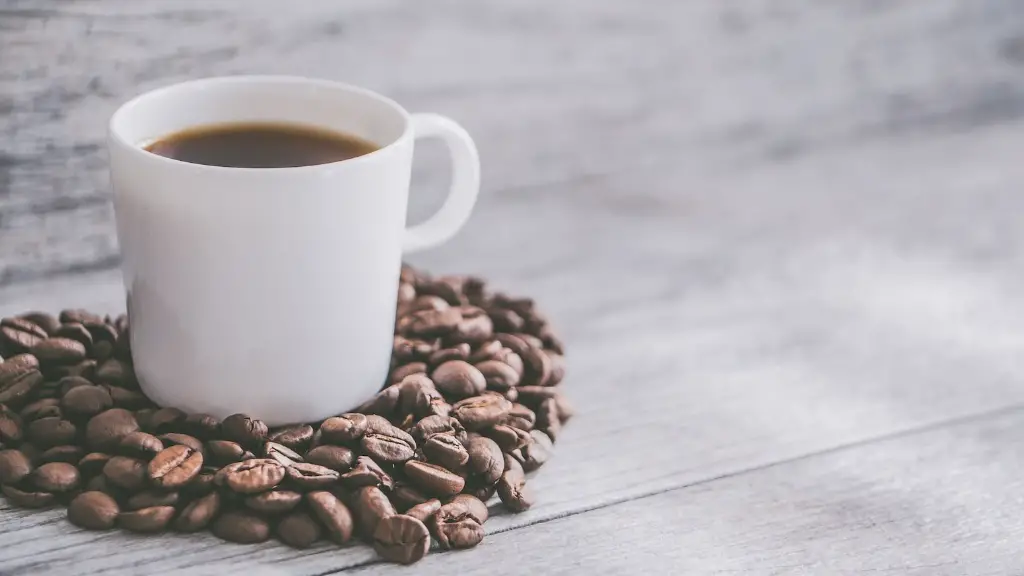We all know how a cup of coffee can give us the extra boost we need in the morning to get our day started. But can drinking too much coffee actually lead to dehydration? Let’s explore what dehydration is, the effects of coffee on our body, and answer the question: can drinking too much coffee dehydrate you?
Dehydration is a condition that occurs when you don’t have enough fluids in your body, and typically when your body needs more for what it’s used to. Symptoms of dehydration may include a dry mouth, thirst, fatigue, dizziness, and dark-colored urine. Chronic dehydration can lead to more serious health problems such as urinary tract infections, high blood pressure, headaches, and even kidney stones.
Coffee is a natural diuretic, meaning that it helps your body get rid of extra fluids. As a result, coffee can have a dehydrating effect when consumed in large amounts. However, it is important to note that it is still possible to stay hydrated while drinking coffee, as long as it is balanced with other fluids like water.
Experts suggest that the dehydrating effects of drinking too much coffee can be minimized by making sure you are taking in enough other fluids during the day. Water, healthy juices, and herbal teas are all great options, and they can help to reduce the amount of coffee you consume. Additionally, limiting your caffeine consumption to the recommended 400mg per day can help to reduce the dehydrating effects of coffee.
It is important to recognize that the amount of caffeine in your daily cup of coffee will vary depending on the strength of the brew and the size of the cup, so it is best to use caution when consuming caffeinated drinks. Many popular brands of coffee are now also offering low-caffeine options for those who are looking for an alternative way to stay hydrated.
At the end of the day, it is still possible to stay hydrated while drinking coffee, but it is important to be mindful of the amount you are consuming. Paying attention to other beverages you are taking in throughout the day can help to reduce the dehydrating effects of coffee. Additionally, limiting your caffeine consumption to the recommended 400mg per day can help to reduce the amount of dehydration you experience.
What are the Causes of Dehydration?
Dehydration occurs when the body does not have enough fluids and electrolytes to function properly. Many everyday activities can lead to dehydration including excessive sweating, increased urination, vomiting, diarrhea, and illness. There are also medications and drinks that can cause dehydration, such as caffeinated beverages and alcohol.
The effects of dehydration can range from mild to severe, depending on the person and the cause of their dehydration. Mild to moderate dehydration can cause symptoms such as a dry mouth, thirst, fatigue, and dark-colored urine. More severe cases of dehydration can lead to symptoms such as confusion, loss of consciousness, and rapid breathing.
It is important to recognize the symptoms of dehydration, as it can be a serious condition. If you experience any of the above symptoms, it is important to seek medical attention as soon as possible. The sooner you address your dehydration, the less serious the effects will be.
Certain groups of people are at a higher risk of becoming dehydrated, including infants, elderly people, people who exercise regularly, and people who work or live in hot climates. It is important for these individuals to be extra mindful of their fluid intake and make sure to stay hydrated throughout the day.
How to Minimize Dehydration
As we have seen, dehydration can be a serious condition and it is important to take steps to minimize the risk. Start by ensuring you are taking in enough fluids each day, with a focus on water. Other healthy options such as herbal teas and fresh juices can also help to reduce dehydration.
It is also important to limit your caffeine intake, as caffeinated beverages can increase the risk of dehydration. Make sure to be mindful of your caffeine consumption and try to stick to the recommended 400mg of caffeine per day. Reducing your intake of caffeinated beverages can help to minimize the effects of dehydration.
If you are someone who is at a higher risk of dehydration, it is important to take steps to protect yourself. Make sure to wear loose-fitting clothing and a hat when spending time outdoors in hot climates. If you are feeling any of the symptoms of dehydration, it is important to seek medical attention as soon as possible.
Staying hydrated is an important part of health and wellbeing and can help to reduce your risk of dehydration. Pay attention to other drinks you are taking in throughout the day, as well as your caffeine intake, and make sure to balance your coffee with other fluids.
Does Coffee Dehydrate You?
Coffee can have a dehydrating effect on the body, as it is a natural diuretic. It helps to get rid of extra fluids your body doesn’t need, so it can increase the risk of dehydration. However, it is still possible to stay hydrated while drinking coffee, as long as it is balanced with other fluids such as water and herbal teas.
It is important to recognize the amount of caffeine in your daily cup of coffee, as this can vary depending on the strength of the brew and the size of the cup. Limiting your caffeine consumption to the recommended 400mg per day can help to reduce the amount of dehydration you experience.
At the end of the day, caffeine can be a helpful way to boost energy and alertness, but it is important to be mindful of how much coffee you are consuming. Paying attention to other beverages throughout the day can help to counteract the dehydrating effects of coffee and ensure you are staying hydrated.
Alternatives to Coffee for Staying Hydrated
If you are looking for an alternative way to stay hydrated, there are plenty of beverages that can help. Water is always a great way to stay hydrated, as well as healthy juices such as coconut water and fruit and vegetable juices. Herbal teas such as chamomile, peppermint, and ginger are also great alternatives to coffee, and they are caffeine-free!
Many people also find that herbal supplements such as ginseng and maca can help to boost energy and alertness, without the dehydrating effects of caffeine. Additionally, adding electrolytes to your water can also help to replenish lost fluids and minimize the effects of dehydration.
If you are looking for an alternative way to stay hydrated, there are plenty of options to choose from. Water, healthy juices, herbal teas, and supplements can all be great ways to help keep your body hydrated throughout the day.
How Does Water Help Dehydration?
Water is essential to the human body and is a major component of our cells. Without water, the body cannot function properly, as it is needed to help transport nutrients and oxygen, regulate body temperature, and to help flush out toxins. Additionally, water can help to keep the body hydrated, and it is important to ensure you are taking in enough fluids throughout the day.
Drinking water throughout the day is the best way to ensure your body is getting the fluids it needs. Many experts recommend drinking eight 8-ounce glasses of water each day for optimal hydration. It is important to note that this amount can vary depending on activity level, climate, and other factors.
Other healthy fluids such as fresh fruit and vegetable juices, herbal teas and sports drinks can also help to keep your body hydrated. Additionally, adding electrolytes to your water can also help to replenish lost fluids and minimize the adverse effects of dehydration.
How to Know if You are Dehydrated
It is important to recognize the symptoms of dehydration, as it can be a serious condition. Mild to moderate dehydration can cause symptoms such as a dry mouth, thirst, fatigue, and dark-colored urine. Additionally, more severe cases of dehydration can lead to symptoms such as confusion, loss of consciousness, rapid breathing, and rapid heartbeat.
If you experience any of the above symptoms, it is important to take steps to restore your hydration as soon as possible. Start by drinking water and other healthy fluids to replenish lost fluids. Additionally, a doctor may recommend an oral rehydration solution, which is a combination of water and electrolytes, to help your body recover from dehydration.
If you are feeling any of the symptoms of dehydration, it is important to seek medical attention as soon as possible. It is also important to note that certain groups of people are at a higher risk of becoming dehydrated, including infants, elderly people, people who exercise regularly, and people who work or live in hot climates. These individuals should be extra mindful of their fluid intake and make sure to stay hydrated throughout the day.
Tips for Staying Hydrated
Staying hydrated is an important part of health and wellbeing and can help to reduce the risk of dehydration. Start by ensuring you are taking in enough fluids each day, with a focus on water. Other healthy options such as herbal teas and fresh juices can also help to reduce dehydration.
It is also important to limit your caffeine intake, as caffeinated beverages can increase the risk of dehydration. Make sure to be mindful of your caffeine consumption and try to stick to the recommended 400mg of caffeine per day. Reducing your intake of caffeinated beverages can help to minimize the effects of dehydration.
If you are someone who is at a higher risk of dehydration, it is important to take steps to protect yourself. Make sure to wear loose-fitting clothing and a hat when spending time outdoors in hot climates. Additionally, adding electrolytes to your water can also help to replenish lost fluids and minimize the adverse effects of dehydration.
At the end of the day, staying hydrated is the best way to reduce your risk of dehydration and ensure your body is functioning optimally. There are many healthy alternatives to coffee for boosting energy and alertness, and it is important to make sure to balance any caffeinated beverages with other fluids.





